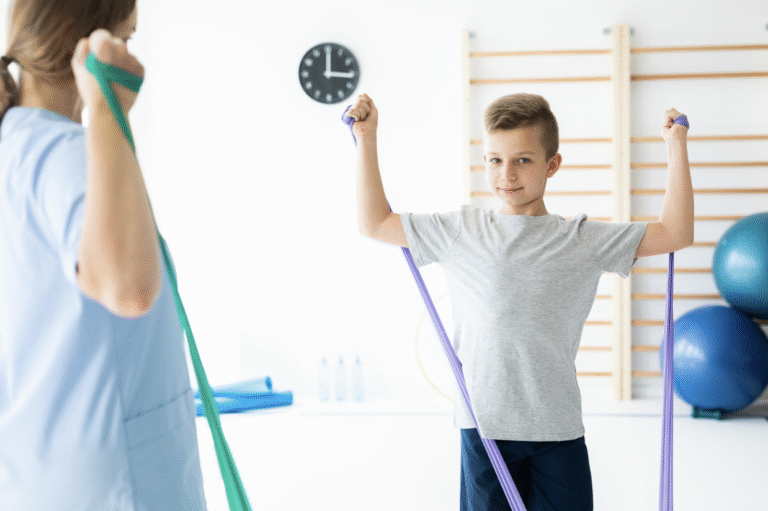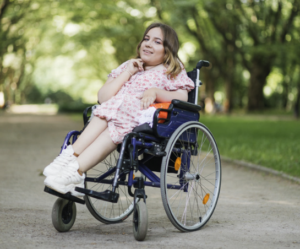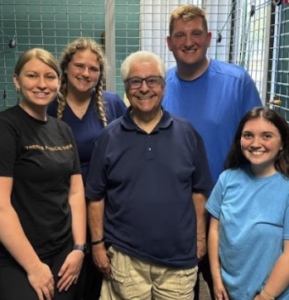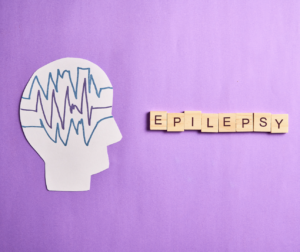Building a Strong Future: Why Early Physical Therapy Matters for Kids
How Addressing Physical Therapy Concerns Early Sets Children Up for Lifelong Success
As a parent, it’s completely natural to wonder if your child’s physical challenges are “just a phase.” Maybe they trip more often than their peers, seem to avoid playground equipment, or have a posture that doesn’t look quite right. It’s easy to hope they’ll grow out of it—but sometimes, those small concerns are signals that their body needs a little extra support.
The truth is, when physical therapy (PT) needs go unaddressed in childhood, those challenges don’t always resolve on their own. In fact, they can quietly snowball into larger issues that affect mobility, confidence, independence, and even long-term health.
At Crawl Walk Jump Run Therapy Clinic, we see firsthand how transformative early intervention can be, not just for a child’s body, but for their entire sense of self. Here’s why addressing physical therapy concerns early is essential.
What Happens When Physical Challenges Are Left Untreated?
Physical therapy isn’t only about helping children walk straighter or jump higher. It’s about laying the foundation for a lifetime of confident movement, participation, and independence.
When physical concerns are left untreated, children can experience ripple effects in many areas of life, including some that might surprise you.
1. Delayed Gross Motor Milestones
If a child struggles with crawling, walking, running, or jumping, it can affect more than just playtime. These delays often impact:
- School readiness (trouble sitting upright, participating in PE, or navigating the school environment)
- Peer interactions (difficulty joining in playground games or sports)
- Self-esteem (feeling left behind or “different”)
2. Compensatory Movement Patterns
When kids encounter physical challenges, their bodies find workarounds—whether it’s toe-walking, W-sitting, leaning heavily to one side, or locking joints for stability. While these may seem minor, over time they can lead to:
- Joint strain
- Muscle tightness or weakness
- Orthopedic issues
- Pain and fatigue
3. Muscle Imbalances and Poor Posture
Without proper muscle engagement, the body compensates, and not always in healthy ways. This often shows up as:
- Chronic back, neck, or joint pain
- Slouching or rounded shoulders
- Limited flexibility or range of motion
- Increased risk of injury in daily life and sports
4. Decreased Endurance and Fatigue
For a child with low muscle tone, weak core strength, or coordination difficulties, everyday tasks can feel like running a marathon. Simple things like climbing stairs or carrying a backpack can quickly lead to exhaustion. This often causes children to avoid physical activities, which can lead to a more sedentary lifestyle and impact their physical and mental health well into adulthood.
The Snowball Effect Is Real
The longer these issues go unaddressed, the more challenging they become to correct. Here’s how it often plays out:
- A toddler who skips crawling misses out on key core strength development.
- A preschooler who struggles with balance avoids physical play, limiting social interactions and motor growth.
- A grade-schooler with poor coordination may start to fall behind in gym class, handwriting, or bike riding—affecting both academics and confidence.
- A teenager who never received PT support may deal with chronic pain, fatigue, poor posture, or social withdrawal from years of feeling “different.”
Unfortunately, these challenges don’t always resolve with time—they can follow a child into adulthood if not addressed early.
The Emotional and Social Toll
It’s not just about movement. Physical challenges impact the whole child:
- Self-esteem: Constantly struggling with tasks their peers do easily can lead to frustration, embarrassment, or withdrawal.
- Anxiety: Kids may dread gym class, avoid sports, or resist social situations where physical ability is on display.
- Cognitive load: When sitting upright or staying balanced is hard work, it can pull focus away from learning, play, and participation.
- Social isolation: Missing out on playground games, birthday parties at trampoline parks, or riding bikes with friends can have a lasting emotional impact.
When kids feel left behind physically, it often affects how they view themselves in every area of life.
Why Early Intervention Works Wonders
The sooner we address physical challenges, the easier it is to set a child up for success. Young bodies and brains are highly adaptable—PT can help correct movement patterns before they become deeply ingrained.
Early PT Helps:
- Strengthen core and postural muscles to support fine motor skills, attention, and stamina.
- Improve balance and coordination, making playgrounds, bikes, and sports feel accessible instead of overwhelming.
- Prevent injury by correcting abnormal movement patterns before they cause joint strain or pain.
- Build confidence, so kids feel proud of their abilities—not limited by them.
Even if your child hasn’t received a formal diagnosis, it’s always worth checking in if you notice:
- Frequent tripping, falling, or clumsiness
- Toe-walking, W-sitting, or unusual walking patterns
- Avoidance of physical tasks (playgrounds, bikes, sports)
- Delays in crawling, walking, jumping, or climbing
How Crawl Walk Jump Run Therapy Clinic Can Help
At Crawl Walk Jump Run Therapy Clinic, we specialize in meeting kids exactly where they are, whether they need a little boost or more intensive support.
Here’s What Makes Us Different:
- Individualized plans: Every child’s needs, strengths, and goals are unique.
- Play-based therapy: We believe therapy should be fun! Our sessions feel like play while targeting important skills.
- Family-centered approach: We coach parents and caregivers along the way, offering strategies to use at home for lasting progress.
- Collaboration: Our physical, occupational, and speech therapists work together to ensure your child has a full team supporting their growth.
Invest in Today for a Stronger Tomorrow
Physical therapy isn’t just about treating a problem—it’s about empowering kids to move through the world with confidence, independence, and joy.
When a child has the strength, coordination, and postural support they need, everything gets easier: learning, playing, making friends, and growing into a healthy, capable adult.
If you’ve been wondering whether your child might benefit from physical therapy, trust that it’s always better to ask. The earlier we intervene, the bigger the impact.
Let’s take that first step together. Contact Crawl Walk Jump Run today free consultation. Your child’s future self will thank you.




